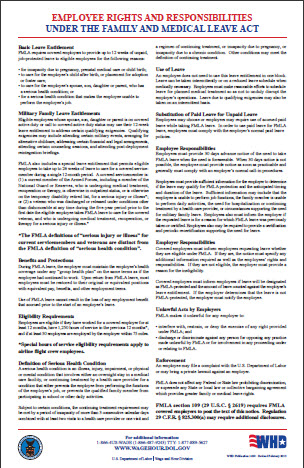By Emily Hobbs-Wright
The Colorado General Assembly wrapped up its 2014 Legislative Session this week, passing a number of bills that change the landscape for Colorado employers. Here is a look at the significant employment-related bills that passed and are expected to be signed into law by Governor Hickenlooper as well as other bills that were introduced but did not make it through the legislative process.
Bills that Passed This Session.
Wage Protection Act of 2014. Senate Bill 14-005 establishes an administrative procedure to adjudicate wage claims under Colorado law. For wages and compensation earned on or after January 1, 2015, the Colorado Division of Labor may receive complaints and adjudicate claims for nonpayment of wages or compensation of $7,500 or less. The written demand for unpaid wages to the employer may come from or on behalf of the employee and is satisfied if a notice of complaint filed with the Division is sent to the employer. In addition to existing fines that may be levied against employers who fail to pay wages, the new law allows the Director of the Division of Labor or a hearing officer to impose a fine of $250 on an employer who fails to respond to a notice of complaint or any other notice from the Division when a response is required. All fines collected will be credited to the State Wage Theft Enforcement Fund to be used for enforcement of this law.
The Wage Protection Act also requires Colorado employers to keep payroll records, including the information contained in an employee’s itemized pay statement, for at least 3 years after payment of wages and to make such records available to the employee and the Division of Labor. (C.R.S. §8-4-103 (4.5)). Employers who violate this record retention requirement are subject to a fine of $250 per employee per month, up to a maximum fine of $7,500.
This new law also provides for the recovery of reasonable attorney fees and court costs for an employee who recovers unpaid wages under Colorado’s minimum wage requirement. Additionally, the new law sets forth procedural requirements for employers responding to a demand for payment and procedures for resolving wage disputes through the administrative procedure. The majority of the new provisions in this law go into effect on January 1, 2015.
Definition of Disabled Individuals Aligned with Americans With Disabilities Act. Senate Bill 14-118 conforms state law definitions of a disability to match definitions under the federal Americans with Disabilities Act (ADA). Specifically, the terms “disability” and “qualified individual with a disability” under Colorado Revised Statute section 24-34-301 are given the same meaning as under the ADA. This bill also moves the definition of “sexual orientation” out of the Employment Practices definition section (C.R.S. § 24-34-401) and into the general definition section for the Civil Rights Division (C.R.S. § 24-34-301.) It also changes the term “assistance dog” to “service animal” and provides additional penalties for violations of the rights of an individual with a disability who uses a service animal and for persons who cause harm to service animals. The law also expanded the available remedies for retaliation and violations of the fair housing and public accommodations discrimination prohibitions. Once signed into law by the Governor, these provisions will go into effect on August 6, 2014.
Expanded Doctor Choice for Workers’ Compensation. House Bill 14-1383 changes the Colorado workers’ compensation law to allow injured workers more choice of doctors. Currently, an employer or workers’ compensation insurer must provide a list of at least 2 physicians or corporate medical providers from which an injured employee may select a treating physician. This bill expands that number to 4. There are additional provisions related to the location and shared ownership status of the health care providers. After signed into law by the Governor, this law will become effective on April 1, 2015.
Clarification of Credit Report Restriction Allowing Employment Use By Financial Institutions. Senate Bill 14-102 amends last year’s Employment Opportunity Act which restricts an employer’s use of credit reports. This amendment clarifies that all positions at a bank or financial institution are jobs for which credit information is deemed to be “substantially related to the employee’s current or potential job.” As a result, financial institutions will be able to obtain and use credit information on employees and applicants when making employment decisions for all job positions. Governor Hickenlooper signed this bill into law on March 27, 2014 and it became effective immediately.
Bills that Failed to Pass This Session.
Paid Sick Leave. Called the Family and Medical Leave Insurance Act (FAMLI), Senate Bill 14-196 sought to create an insurance program to provide pay to employees who take unpaid FMLA or sick leave. The program would be paid for by employees who pay premiums into a “fund” in the state treasury; employers would not be funding it. Eligible employees would be able to receive a percentage of their pay while on leave, not to exceed $1,000 per week. The bill would have prohibited Colorado employers from discharging, discriminating or retaliating against employees who seek to use benefits under the program or assist in a related-proceeding. Advocated by the Colorado chapter of 9 to 5, this bill, introduced on April 15th, differed from previous paid sick leave bills as it did not require employers to fund the program. On May 1, this bill was postponed indefinitely in committee and therefore, did not make it to a vote.
Drug Testing Misdemeanor. House Bill 14-1040 would have established a drug misdemeanor for an employee who is legally required to undergo drug testing as a condition of his or her job and either tests positive for a controlled substance without a prescription, or knowingly defrauds the administration of the drug test by an employer. To “defraud the administration of a drug test” is defined in the bill to include submitting a sample from someone else or a sample collected at a different time or some other conduct intended to produce a false or misleading outcome. This bill passed the House but the Senate sent it to committee where it was postponed indefinitely.
Anti-Union Bills. – House Bills 14-1087 would have prohibited collective bargaining for the state’s public employees. House Bill 14-1098 and Senate Bill 14-113 would have prohibited employers from entering into agreements to require employees to join a union. All three bills failed shortly after introduction as expected due to the democratic majority in both chambers of Colorado’s legislature.
The bills that passed in the 2014 Legislative Session reflect a continued trend at the state level to implement new or refine existing employment-related laws. We will keep you posted on any further developments.
Click here to print/email/pdf this article.
 By Brad Cave
By Brad Cave







